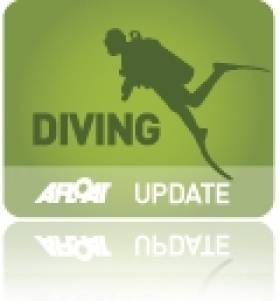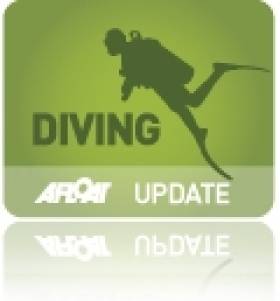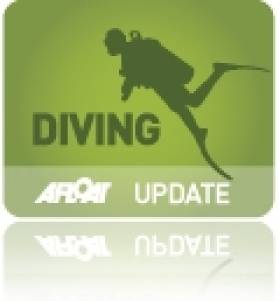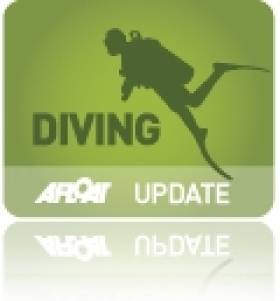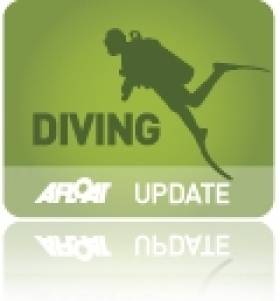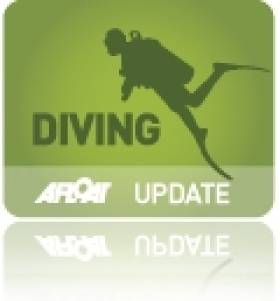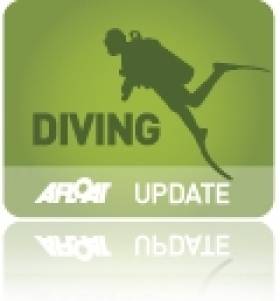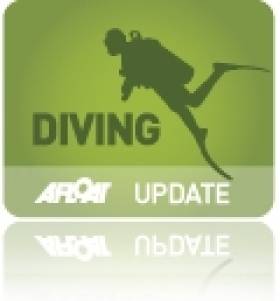Displaying items by tag: diving
Limerick Man Dies After Roches Point Dive
#Diving - RTÉ News reports that a man has died while diving near Roches Point at Cork Harbour yesterday (14 June).
The 45-year-old from Limerick, believed to be a member of a volunteer dive search and rescue team in North Cork, was rushed to treatment after surfacing from a dive.
Crosshaven RNLI reports that its lifeboat met the dive craft off Fort Camden and transferred volunteer crew member Ian Venner on board to administer first aid to the casualty.
The lifeboat was met ashore by lifeboat medical advisor Dr John Murphy, and first Aid continued until the casualty was handed over to the ambulance service. The Irish Coast Guard helicopter Rescue 117 from Waterford was also tasked.
The diver later died at Cork University Hospital.
RTÉ News has more on the story HERE.
No Funding For Sub-Aqua Rescue Says Varadkar
#Diving - Minister Leo Varadkar has confirmed that diving teams who regularly assist in emergency operations will not qualify for grants available to volunteer rescue groups.
As TheJournal.ie reports, volunteer teams such as those under the Mountain Rescue Ireland and Community Rescue Boats Ireland umbrellas are in receipt of payments or grants of up to €5,000.
But no such payments are available to volunteer diving groups that provide assistance for Naval Service and Garda dive teams, which are co-ordinated by the Irish Coast Guard.
In response to a Dáil question from independent deputy Denis Naughten, the Minister for Transport, Tourism and Sport said that, while "regrettable", it is "not envisaged" to extend rescue volunteer funding to sub-aqua groups. TheJournal.ie has more on the story HERE.
Mother Of SADS Diver Calls For Nationwide Screening Programme
#Health - The mother of a 29-year-old Corkman who died while SCUBA diving in Thailand has called for all Irish secondary school students to be screened for SADS, according to the Irish Independent.
As previously reported on Afloat.ie, Colin Callanan - who had been based in Australia for six years before his death – was diving off the island of Koh Tao off the east coast on Thailand on 12 April last year while on a work trip to the country.
It later emerged that the cause of his death was Sudden Adult/Arrhythmic Death Sundrome, or SADS, a condition widely considered a 'silent killer' of otherwise outwardly healthy young people.
On the first anniversary of his death, his mother Marie is launching a campaign for health screening of all teenagers in Ireland, following a trial at a school in Bandon that identified a number of at-risk cases.
The Irish Independent has more on the story HERE.
Plunge Into Diving At Dive Ireland 2014
#Diving - Did you know that Dublin Bay alone has at least eight wreck diving sites, from the Marlay to the Vanguard?
That's just the tip of what's available to explore beneath the surface along the capital's coastline, according to the Dublin Port Company.
It's never been easier to get involved in the pastime, thanks to the efforts of the Irish Underwater Council (CFT).
And a great place to start would be Dive Ireland 2014, the 23rd Annual International Dive Show at the New Park Hotel in Kilkenny City on 1 and 2 March.
All the latest dive equipment and gadgets will be displayed, and expert speakers will be on hand covering a wide range of interesting topics to cater for everybody’s interests.
Keynote speaker for this year's show will be adventure diver Andy Torbet, who will surely talk about some of the more extreme cave dives and freedives he's embarked upon.
'Blueway' Snorkel And Canoe Trail Set To Launch This Year
#Diving - A new series of 'free water trails' on the Galway-Mayo coastline where diving novices can get into snorkelling is set to be launched early this year.
TheJournal.ie reported recently on plans for the Blueway, a network of five coastal sites in the West - Boffin Harbour on Inis Boffin, Killary Fjord, Keem on Achill Island, Mannin Bay and the Old Head in Co Mayo - that will provide safe havens for snorkelling and open water canoeing alike.
The concept is the brainchild of Irish Underwater Council sports development officer Laura Taylor, and already has the backing of Fáilte Ireland, the Irish Canoe Union/Canoeing Ireland, the National Trails office and three rural development companies.
It's hoped that the Blueway will make the wonders of Ireland's coastal waters more accessible to those who may be put off by the perceived expense of diving as a hobby.
Snorkelling - which only requires a wetsuit, mask and snorkel, and some easy training available at pools nationwide - provides and easy in to exploring the deep, especially for families.
And it's appeal is part of a push to encourage more would-be coastal explorers to take the plunge in the wake of the 50th anniversary of the Irish Underwater Council (CFT), as previously reported on Afloat.ie.
RTÉ Radio Doc Dives For Ireland's 'Sunken Treasures'
#Documentary - A new radio documentary highlighting the historical significance of the many shipwrecks that dot Ireland's shores will be broadcast tomorrow afternoon Saturday 20 November on RTÉ Radio 1.
'Sunken Treasures' is part of the Documentary on One strand and will be on the airwaves from 2pm tomorrow - but the 40-minute documentary is already available to stream or download from the RTÉ website HERE.
The programme, narrated by Patricia Baker, follows diving expert Eoin McGarry as he descends to the shipwreck of the SS Crescent City off Galley Head in Cork in search of her legendary treasure of silver coins and bars - some of which is still said to lie in the depts of Dhilligh Rock.
McGarry should be familiar to Afloat.ie readers for his wonderful tale of recovering artefacts from the undersea ruins of the Lusitania two years ago.
RTÉ Radio 1 has more on the new documentary HERE.
Celebrating Half A Century Of Diving In Ireland
#Diving - The Irish Times' Lorna Siggins profiles the Irish Underwater Council (CFT) as it celebrates its 50th anniversary.
The organisation has certainly come a long way since founder member Michael Moriarty first plunged into the depths with little more than a dry suit and some rubber breathing hoses for air.
Of course technology would revolutionise the pastime, with the development of the diving regulator and later the rebreather system, which made diving much safer and allowed divers to explore beneath the surface better than ever before.
Such developments also provoked big changes in the way Ireland values its national heritage.
Today it's hard to believe that now endangered shellfish were picked on a whim, or that the National Museum considered the numerous wrecks from the Spanish Armada were "not of historical significance".
The Irish Times has much more on the story HERE.
Tributes Paid Over Diving Death Tragedy In Killary Bay
#Diving - A man has died after a suspected heart attack while diving in Killary Bay yesterday afternoon (27 October), as the Irish Independent reports.
Family have paid tribute to 52-year-old Gerry Deane, who was with friends on a diving trip at Ireland's only fjord when they got into difficulty as the Galway and Mayo region was lashed by strong winds and heavy rain.
Emergency services were notified around 1.30pm when Deane failed to resurface. He was pulled from the water shortly after and airlifted by Irish Coast Guard helicopter to Galway University Hospital, where he was later pronounced dead.
"He died doing what he loved," said Deane's cousin, Castlebar Rugby Club president Michael Cunningham. "He had been diving for many years but had stopped for a while and went back to it in the last two years."
The Irish Independent has more on the story HERE.
Take The Plunge At DIVE 2013 In Birmingham This Weekend
#Diving - The UK's biggest event for diving enthusiasts, the annual NEC Birmingham Dive Show has established a remarkable reputation for covering every aspect of the sport in the most innovative and exciting ways.
And this year's show, running tomorrow Saturday 25 and Sunday 26 October, is surely no exception.
At DIVE 2013 you'll find plenty to interest, enjoy and inspire – in an exhibition hall boasting around 300 exhibitors, plus two try-dive pools, special features and free talks by diving's leading experts.
As ever the show - organised by DIVER Group, the same team behind the London International Dive Show - gives visitors the chance to socialise with friends from around the world; browse or buy diving equipment, training courses and holidays; and gain inspiration from seeing what other divers have been getting up to.
Whether you're an experienced diver or just starting out, DIVE 2013 is the only place to be this weekend.
For more on the event see the DIVE 2013 website HERE.
Divers Find Body In Search For Missing Angler
#NewsUpdate - TheJournal.ie reports that Naval Service divers yesterday recovered a body from the sea off Co Clare during the search for a missing fisherman.
As reported Monday on Afloat.ie, the Latvian national was angling with friends near Fanore when he was swept off the rocks by an unexpected wave.
A major search and rescue operation was launched soon after but interrupted due to adverse weather and sea conditions on Sunday evening and Monday afternoon.
However, divers retrieved a body from the water some two hours into the resumed search yesterday morning (Tuesday 8 October). Formal identification of the remains is pending.


























